Stories We Tell/The Room Where It Happened
On How History Gets Made & Lost
History matters.
Our stories get passed around and refined on their way to becoming an accepted narrative, which eventually is generally accepted as ‘the truth’. If this truth is written down and published somewhere deemed believable, it eventually becomes known as historical fact.
So when only certain stories get told and repeated, our cultural learning loses valuable insights. Some people are forgotten or ignored or purposefully omitted from official stories. They become footnotes, or disappear. I know this often used phrase sounds trite, but it’s not: if you can see it, you can be it. This becomes especially true when whole swathes of the population that have been left out of official narratives, finally get to see themselves reflected in the stories of others. Representation gives us strength and reassurance that when someone tells you that you can’t do something, you know damn well you can. You’ve seen it done. Stories open up our worlds, expanding the boundaries of possibilities. Representation changes stereotypes about gender, race, ability, experience. Representation shifts cultural norms.
The American Historical Association states ‘…history is NOT a "collection of facts about the past." History consists of making arguments about what happened in the past on the basis of what people recorded (in written documents, cultural artifacts, or oral traditions) at the time.’
I met singer-songwriter Bambi Lee Savage in Los Angeles and we immediately hit it off. I knew a little bit about her impressive musical background and knew she was working on an album but I didn’t know much about her past. Eventually I found out she’d spent a few years working at the legendary Hansa Studios in Berlin as an audio engineer, which I thought was really fascinating (especially as I’d studied the magical dark art of audio engineering myself and not really managed to master or retain many of those skills).
Iggy Pop’s ‘Lust For Life’ and ‘The Idiot’ were recorded at Hansa Studios with David Bowie who also made ‘Heroes’ there in 1977, part of what he calls his ‘DNA’ or his ‘Berlin trilogy’ along with ‘Low’ and ‘Lodger’, imbuing the building with an awe summoning mythos that made other bands like the Birthday Party and Depeche Mode and Einstürzende Neubaten want to record there too, in the hope of getting a magic lick of whatever fired those albums that went before. Stories have power.
When I saw the documentary Hansa Studios: By the Wall 1976-90 promoted I was excited to watch it, presuming I’d see Bambi in the mix, but she wasn’t interviewed - and you’d be forgiven for thinking it was a ‘men only’ club, (bar the post-punk artist Gudrun Gut and sensational underground performer/nightclub owner Romy Haag, who was Bowie’s lover and credited with inspiring his Berlin trilogy). It really bothered me that Bambi’s voice was missing from this official narrative of who was there. Now, Bambi was not a producer nor responsible for the sound of the recordings she worked on, but in a world where less than 5 percent of audio engineers identify as female, it’s important to take note of those outliers that are contributing and working in that realm. So many women are just written out of history. We need to witness each time someone kicks down a door or shifts a cultural norm.
I pitched Rolling Stone a story about Bambi and her secret history as the first female engineer at Hansa and much to my joy the editor commissioned me to do an in-depth interview with her. You can read the story here: How Bambi Lee Savage Broke Down the Studio Boys’ Club and Worked on One of the Nineties’ Biggest Albums
Electronic music pioneer Delia Derbyshire, armed with a graduate degree in Music and Mathematics from Cambridge University in 1959, first went to Decca Studios looking for work and was told they didn’t employ women in the recording studio. Undeterred, she went to the BBC to apply for work as a composer - they gave her a job as a studio assistant in the Radiophonic Department where she went on to create the iconic arrangement for the original Dr Who theme from samples she created and manipulated herself, using three tape machines with each note in the composition individually cut and taped together. She was uncredited as per BBC policy:
“composer Ron Grainer had given Delia not a full musical score but a scribbled idea on a sheet of the manuscript with vague directions that she interpreted perfectly. His stunned reaction upon hearing the finished piece was to ask “Did I write that?!” to which Delia replied, “Most of it.” The original intention had been to hire and record a French band performing the piece on glass rims, however, the BBC budget was too tight, hence Delia was brought in.” (via Soundgirls.com)
Audio engineer Mary Mazurek (2018 Grammy nominated for Best Engineered Album) tells a story of contacting a Chicago recording studio when she was starting out looking for an engineering gig and was told "We don't hire women engineers, but you can answer the phone if you’d like."
Live sound engineer Beth O’Leary talks about being on tour with Kylie Minogue and how out of a tech crew of 41 people, only 3 were female, and that was considered ‘unusually good’.
Producer Marta Salogni (Bjork, Depeche Mode, Alex Cameron) recently told Tape Op that when she saw a picture of Leslie Ann Jones behind a console at Capitol Studios, it was the first time she felt understood. ‘Oh, my god, Leslie Ann looked so cool! I saw a picture of her in the studio, and she looked so confident running the session. That picture became – in the back of my head – “I want to be like her.” She was wearing a wristwatch, and that is the reason that every time I record, I wear a wristwatch in homage to Leslie Ann Jones. .. She was totally a role model for me, from that point onwards.’ Leslie Ann was the first female assistant audio engineer hired at ABC Studios in Los Angeles in 1975 - the studio head told her that ‘he wasn't sure how the clients would react but he'd give me a try’ - and went on to have a long and illustrious multiple Grammy award winning engineering career.
Renowned audio engineer Lenise Bent told Tape Op about growing up on film-sets as a child actor but always being more fascinated by what the crew were doing behind the scenes. A sound engineer boyfriend invited her to Leon Russell’s home recording studio where she had an epiphany after seeing the gear and the console and hearing voices singing like angels - she says she said, “I know now what it is that I’m supposed to be doing. Roger, show me how to work this” and dropped out of school the next day to work out how to pursue her dream. Her most well known engineering credits include Blondie’s Auto American, Steely Dan’s Aja and Fleetwood Mac’s Tusk. I was lucky enough to record vocals for my song ‘I Slipped, I Stumbled, I Fell’ with Lenise in an amazing studio (owned by Barbara Streisand!), after meeting her through my daughter and it was a session I’ll never forget. It was after hours and just the two of us. She’d just finished a ten hour session recording a 12 piece Latin band. Despite that, her ear was meticulous and exacting while her vibe was encouraging and inspiring, always pushing me to go a bit further. She wouldn’t stop until she was happy it was the best it could be. It was such a thrill to work with her.
Trina Shoemaker was the first female to win a Grammy for ‘Best Engineered Album, Non Classical’ for Sheryl Crow’s 1998 album The Globe Sessions. Sheryl had been unhappy with the original (male) producers/engineers and decided to do it herself with Trina. Sheryl was nominated for ‘Producer of the Year’ and they won ‘Best Rock Album’. Since the award category was created in 1975, there has not yet been a female win for ‘Producer of the Year’.
‘This Woman’s Work: Essays on Music’, (Orion) edited by Sinéad Gleeson* and Kim Gordon, seeks to ‘challenge the historic narrative of music and music writing being written by men, for men’. Sinéad wrote about the trailblazing Wendy Carlos, described by The Guardian as ‘arguably the most important living figure in the history of electronic music’. As a teen, Carlos patched together her own hi-fi system for the family home and invented her own computer and tape machine. She advised Robert Moog on the creation of the Moog synthesiser. She is responsible for ‘Switched-On Bach’ the collection of Bach compositions reinvented for a groovy Moog hungry crowd, that stayed at the top of the US classical charts for over three years. She composed ‘The Shining’ and ‘A Clockwork Orange’ soundtracks. Her work is cited as heavily influencing the ‘Stranger Things’ theme, Stevie Wonder, Brian Eno and Goldfrapp. Until recently, not a lot had been written about her.
There’s a quote from Serena Williams that kind of sums up why all these stories matter so much, from after she was given multiple violations and had ‘a meltdown’ at the U.S Open; ‘I just feel like the fact that I have to go through this is just an example for the next person that has emotions and that want to express themselves and they want to be a strong woman. They’re gonna be allowed to do that because of today… Maybe it didn’t work out for me, but it’s gonna work out for the next person.’
As a teenager I used to babysit for a much in demand female audio engineer (Christine Dengate). I wish now I’d asked her more about what she was doing and who she was working with but it just seemed like a normal job to me then. I wasn’t aware that there were so few women in the industry. But I’m sure I benefited from the assumption that it was not a big deal to be going off to work as an audio engineer and be the mother of a small baby in ways that I’m only just comprehending.




To all the door kickers and the way-pavers and the trailblazers and those that fearlessly followed their own arrows no matter how untrodden that path was and held the door open for those behind them - thank you.
*You can find more from Sinéad Gleeson here on Substack: Moments of Recognition by Sinéad Gleeson
.



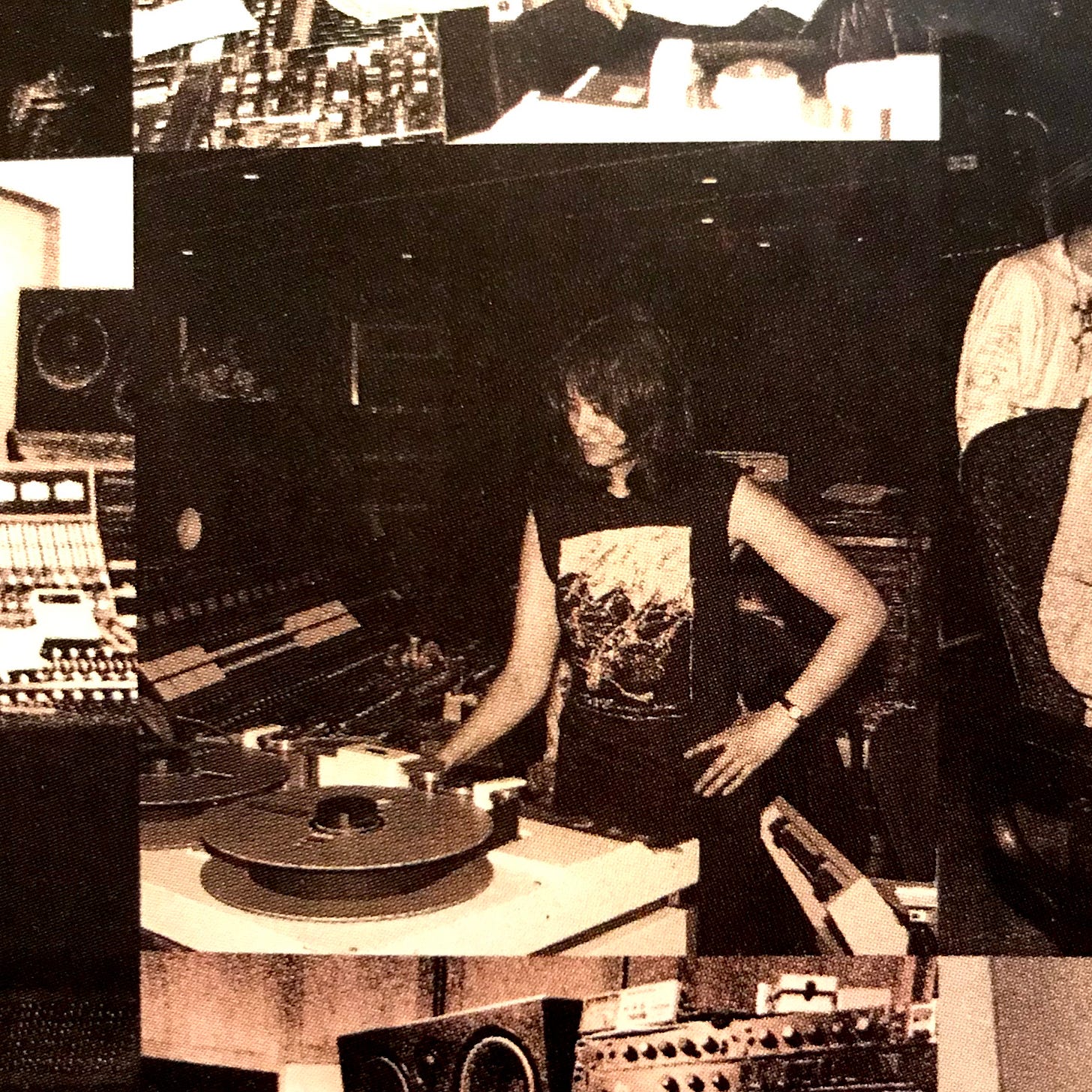
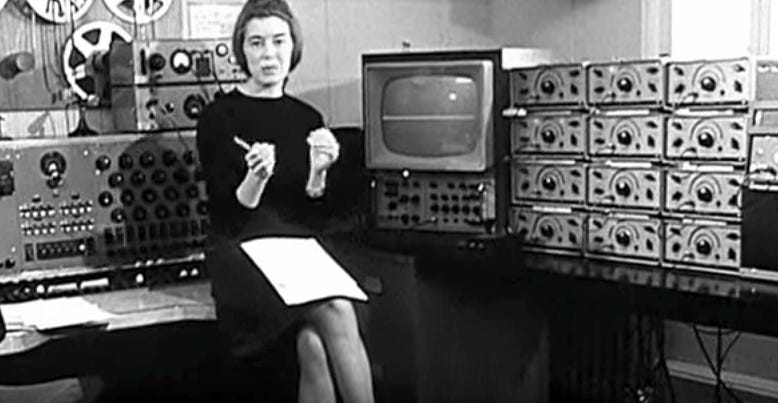
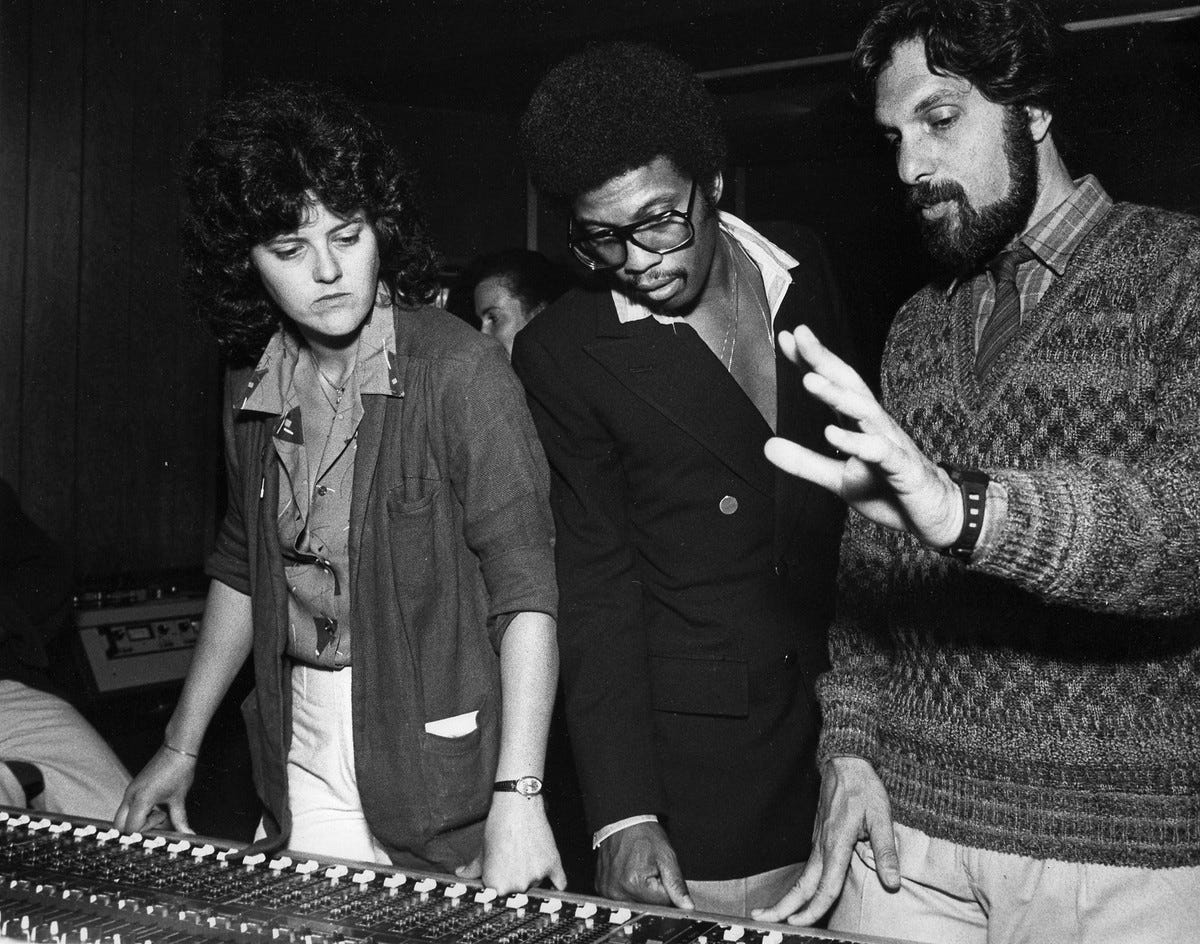
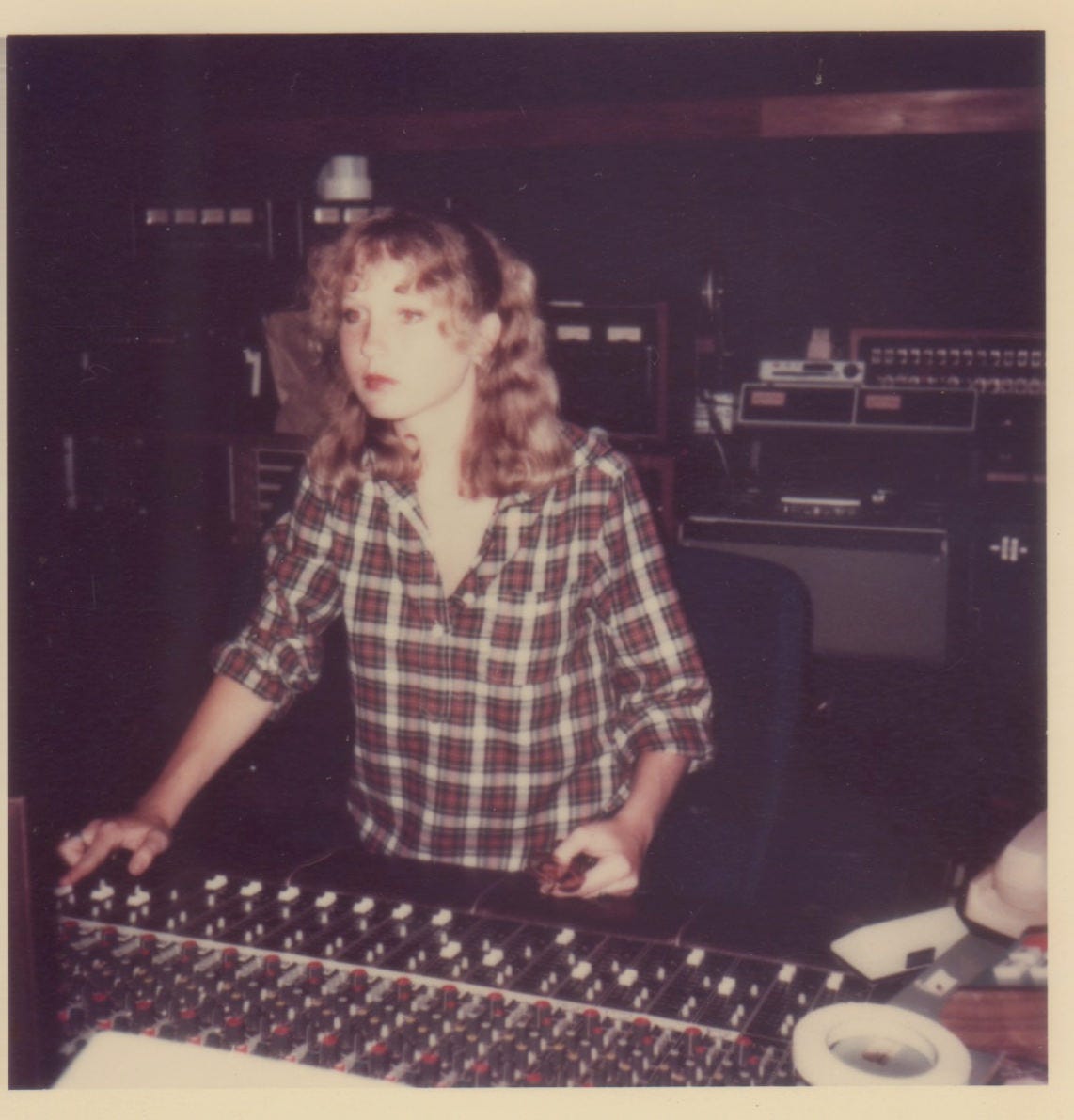
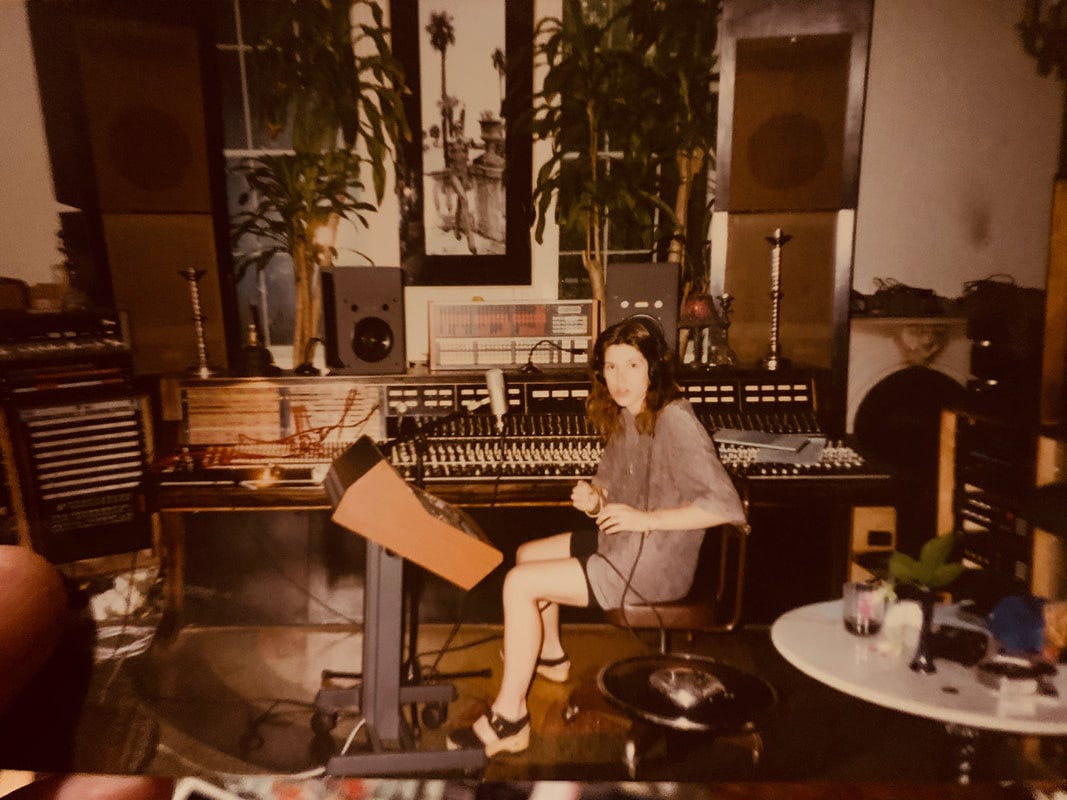
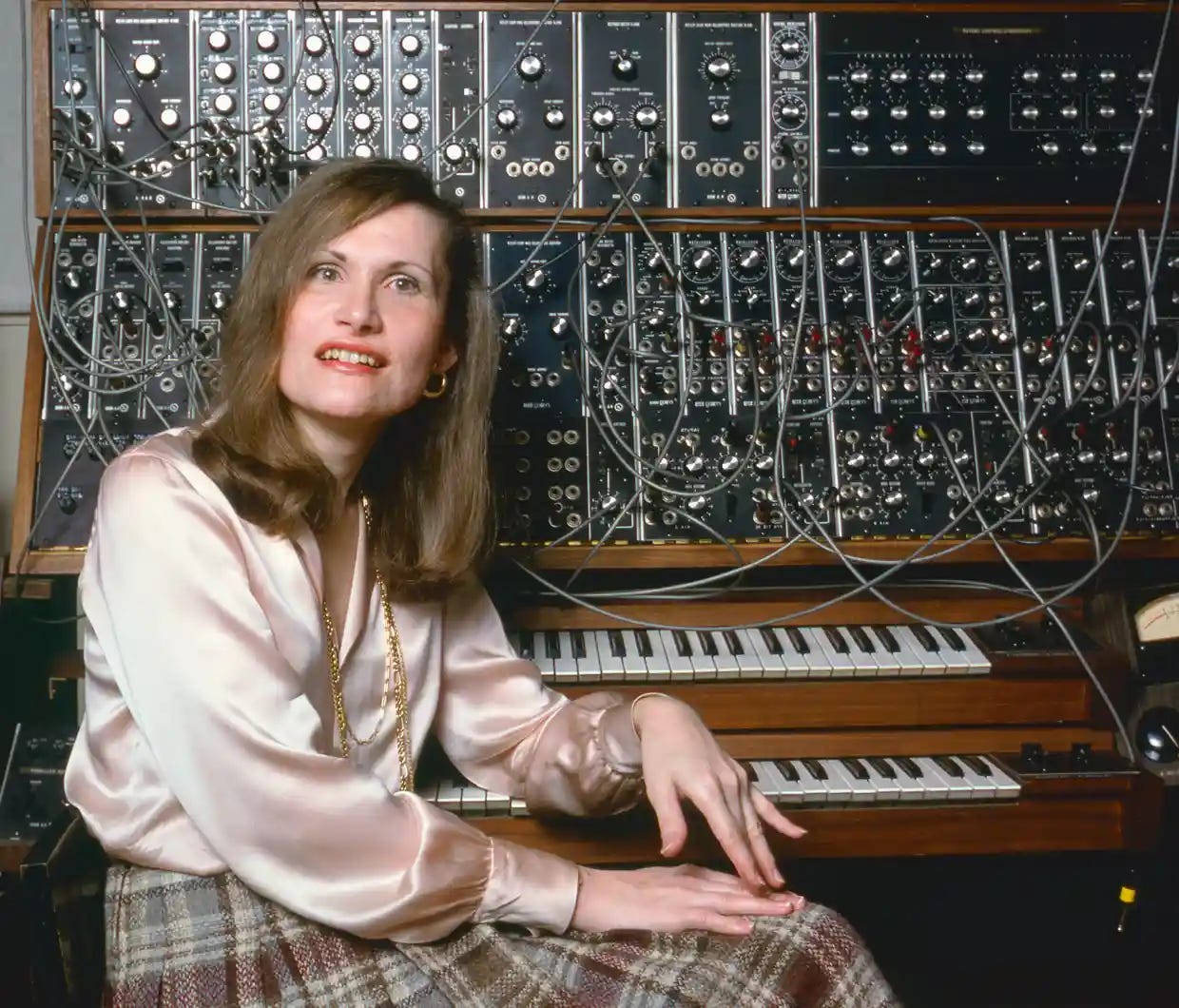
While I was reading this I was hoping there was a book of your own about female audio engineers in here. Brilliant
post, thanks Loene. What a researcher and cultural historian you are!! I will look for the book you mention and read your RS interview. I think I have coincidentally followed Sinéad on Mastodon and will now read her here.
Excellent reading. Love the historical bits and personal anecdotes & pics. Keep way-paving Lo, always take the high road.